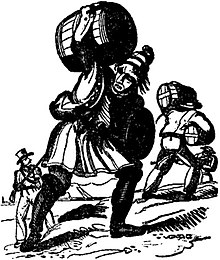
"Why is the rum always gone???"... --- Jack Sparrow
Rum is a distilled alcoholic beverage made from sugarcane byproducts, such as molasses, or directly from sugarcane juice, by a process of fermentation and distillation. The distillate, a clear liquid, is then usually aged in oak barrels.
Rum is a distilled alcoholic beverage made from sugarcane byproducts, such as molasses, or directly from sugarcane juice, by a process of fermentation and distillation. The distillate, a clear liquid, is then usually aged in oak barrels.
The majority of the world's rum production occurs in the Caribbean and Latin America. Rum is also produced in Scotland, Austria, Spain, Australia, New Zealand, Fiji, the Philippines, India, Reunion Island, Mauritius, South Africa, Taiwan, Thailand, Japan, the United States, and Canada.
Rums are produced in various grades. Light rums are commonly used in cocktails, whereas "golden" and "dark" rums were typically consumed straight or neat, on the rocks, or used for cooking, but are now commonly consumed with mixers. Premium rums are also available, made to be consumed either straight or iced.
Rum plays a part in the culture of most islands of the West Indies as well as in The Maritimes and Newfoundland. This beverage has famous associations with the Royal Navy (where it was mixed with water or beer to make grog) and piracy (where it was consumed as bumbo). Rum has also served as a popular medium of economic exchange, used to help fund enterprises such as slavery (see Triangular trade), organized crime, and military insurgencies (e.g., the American Revolution and Australia's Rum Rebellion).
Given the harsh taste of early rum, this is unlikely. Morewood later suggested another possibility: that it was taken from the last syllable of the Latin word for sugar, saccharum, an explanation commonly heard today.[1]
Other etymologists have mentioned the Romani word rum, meaning "strong" or "potent". These words have been linked to the ramboozle and rumfustian, both popular British drinks in the mid-17th century. However, neither was made with rum, but rather eggs, ale, wine, sugar, and various spices. The most probable origin is as a truncated version of rumbullion or rumbustion.[2] Both words surfaced in English about the same time as rum did (Joan Coromines states 1651 as the first recording of "rumbullion", and 1654 for "rum" -1770 for the first recording in Spanish of ron), and were slang terms for "tumult" or "uproar". This is a far more convincing explanation, and brings the image of fractious men fighting in entanglements at island tippling houses, which are early versions of the bar.[1]
Another claim is the name is from the large drinking glasses used by Dutch seamen known as rummers, from the Dutch word roemer, a drinking glass.[3] Other options include contractions of the words iterum, Latin for "again, a second time", or arôme, French for aroma.[4]
Regardless of the original source, the name was already in common use by 1654, when the General Court of Connecticut ordered the confiscations of "whatsoever Barbados liquors, commonly called rum, kill devil and the like".[5] A short time later in May 1657, the General Court of Massachusetts also decided to make illegal the sale of strong liquor "whether knowne by the name of rumme, strong water, wine, brandy, etc."[4]
In current usage, the name used for a rum is often based on its place of origin.
For rums from Spanish-speaking locales, the word ron is used. A ron añejo ("old rum") indicates a rum that has been significantly aged and is often used for premium products.
Rhum is the term that typically distinguishes rum made from fresh sugar cane juice from rum made from molasses in French-speaking locales like Martinique.[6] A rhum vieux ("old rum") is an aged French rum that meets several other requirements.
Some of the many other names for rum are Nelson's blood, kill-devil, demon water, pirate's drink, navy neaters, and Barbados water.[7] A version of rum from Newfoundland is referred to by the name screech, while some low-grade West Indies rums are called tafia.
The precursors to rum date back to antiquity. Development of fermented drinks produced from sugarcane juice is believed to have first occurred either in ancient India or in China,[2] and to have spread from there. An example of such an early drink is brum. Produced by the Malay people, brum dates back thousands of years.[9] Marco Polo also recorded a 14th-century account of a "very good wine of sugar" that was offered to him in the area that became modern-day Iran.[2]
The first distillation of rum took place on the sugarcane plantations of the Caribbean in the 17th century. Plantation slaves first discovered that molasses, a byproduct of the sugar refining process, could be fermented into alcohol.[10] Later, distillation of these alcoholic byproducts concentrated the alcohol and removed impurities, producing the first true rums. Tradition suggests rum first originated on the island of Barbados. However, in the decade of the 1620s, rum production was recorded in Brazil.[11] A liquid identified as rum has been found in a tin bottle found on the Swedish warship Vasa, which sank in 1628.[12]
A 1651 document from Barbados stated, "The chief fuddling they make in the island is Rumbullion, alias Kill-Divil, and this is made of sugar canes distilled, a hot, hellish, and terrible liquor."[10]
After rum's development in the Caribbean, the drink's popularity spread to Colonial North America. To support the demand for the drink, the first rum distillery in the British colonies of North America was set up in 1664 on present-day Staten Island. Boston, Massachusetts had a distillery three years later.[13] The manufacture of rum became early Colonial New England's largest and most prosperous industry.[14]New England became a distilling center due to the technical, metalworking and cooperage skills and abundant lumber; the rum produced there was lighter, more like whiskey. Rhode Island rum even joined gold as an accepted currency in Europe for a period of time.[15]Estimates of rum consumption in the American colonies before the American Revolutionary War had every man, woman, or child drinking an average of 3 imperial gallons (14 l) of rum each year.[16]
To support this demand for the molasses to produce rum, along with the increasing demand for sugar in Europe during the 17th and 18th centuries, a labor source to work the sugar plantations in the Caribbean was needed. A triangular trade was established between Africa, the Caribbean, and the colonies to help support this need.[17] The exchange of slaves, molasses, and rum was quite profitable, and the disruption to the trade caused by the Sugar Act in 1764 may have even helped cause the American Revolution.[16] In the slave trade, rum was also used as a medium of exchange. For example, the slave Venture Smith, whose history was later published, had been purchased in Africa for four gallons of rum plus a piece of calico.
The popularity of rum continued after the American Revolution, with George Washington insisting on a barrel of Barbados rum at his 1789 inauguration.[18]
Rum started to play an important role in the political system; candidates attempted to influence the outcome of an election through their generosity with rum. The people would attend the hustings to see which candidate appeared more generous. The candidate was expected to drink with the people to show he was independent and truly a republican. In the 1833 Mississippi state senate election, one candidate, Judge Edward Turner, poured his drinks and socialized with the people. He was more personal and it appeared as if he was going to win. The other candidate, a Methodist parson named Dick Stewart, announced he would not be pouring their drinks and they could have as much as they wanted; Dick Stewart won.[19][20]
Eventually the restrictions on sugar imports from the British islands of the Caribbean, combined with the development of American whiskey, led to a decline in the drink's popularity in North America.






No comments:
Post a Comment